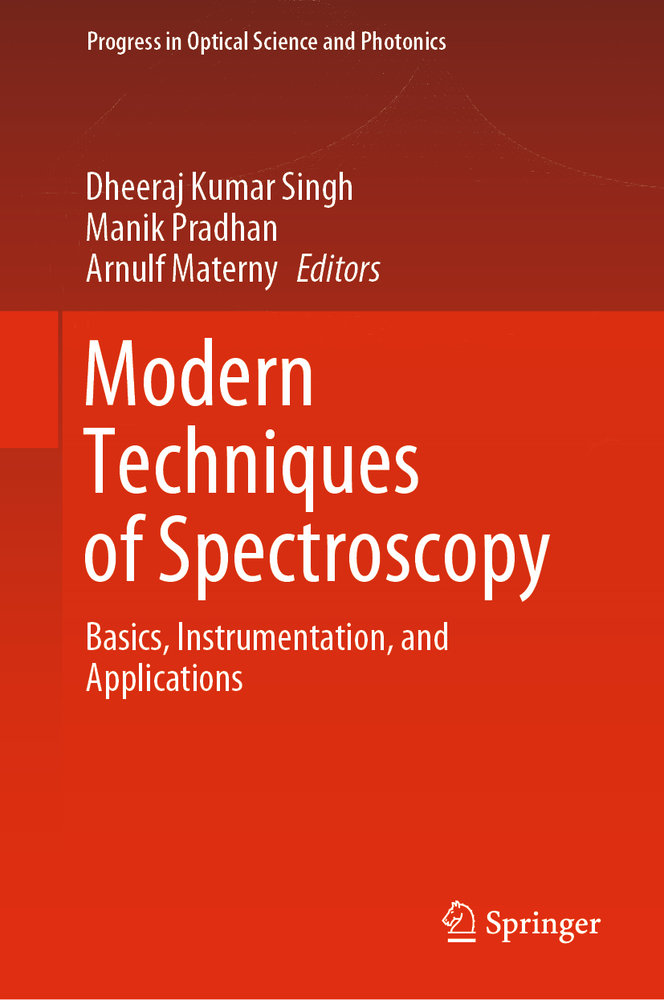The book highlights recent developments in the field of spectroscopy by providing the readers with an updated and high-level of overview. The focus of this book is on the introduction to concepts of modern spectroscopic techniques, recent technological innovations in this field, and current examples of applications to molecules and materials relevant for academia and industry. The book will be beneficial to researchers from various branches of science and technology, and is intended to point them to modern techniques, which might be useful for their specific problems. Spectroscopic techniques, that are discussed include, UV-Visible absorption spectroscopy, XPS, Raman spectroscopy, SERS, TERS, CARS, IR absorption spectroscopy, SFG, LIBS, Quantum cascade laser (QCL) spectroscopy, fluorescence spectroscopy, ellipsometry, cavity-enhanced absorption spectroscopy, such as cavity ring-down spectroscopy (CRDS) and evanescent wave-CRDS both in gas and condensed phases, time-resolved spectroscopy etc. Applications introduced in the different chapters demonstrates the usefulness of the spectroscopic techniques for the characterization of fundamental properties of molecules, e.g. in connection with environmental impact, bio-activity, or usefulness for pharmaceutical drugs, and materials important e.g. for nano-science, nuclear chemistry, or bio-applications. The book presents how spectroscopic techniques can help to better understand substances, which have also great impact on questions of social and economic relevance (environment, alternative energy, etc.).


